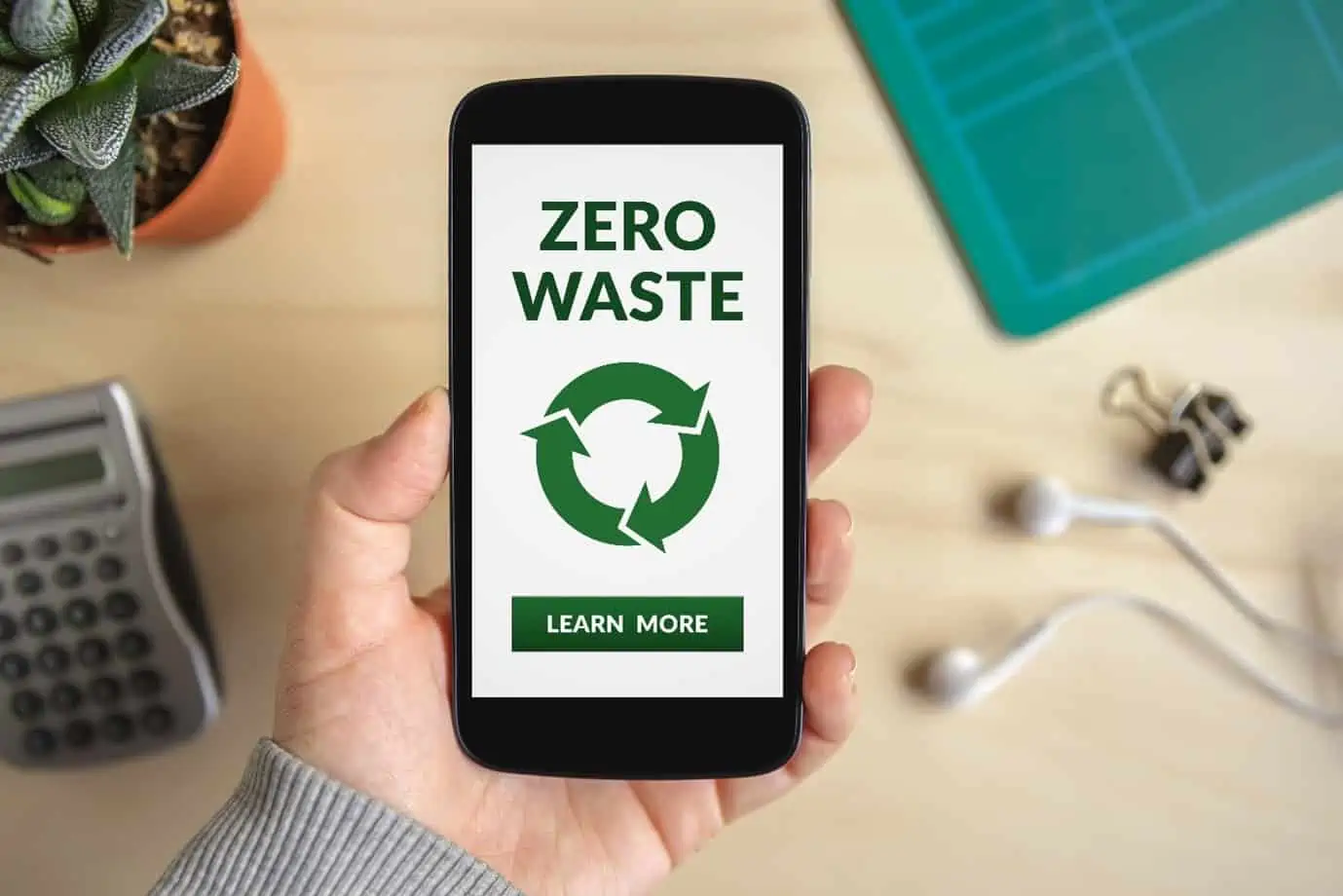In the fast-paced world of today, professional commitments, combined with personal life and social liabilities, barely leave us with a little time to breathe, let alone ponder over anything else. The pressures of outperforming in your career, keeping good relationships, and daily management make every notion towards sustainability just sound like another ‘to-do’ in an endless list. The zero-waste lifestyle doesn’t have to be overwhelming or even all that time-consuming. In fact, it can really be a thoughtful way to simplify your life, improve your well-being, and even increase productivity at work.
This blog post is going to walk you through the ways in which you can realistically and practically move toward a zero-waste lifestyle as a busy professional. You can achieve small, impactful changes with ease to fit into your busy routine, reduce waste, save money, and contribute to a more sustainable world.
What Is a Zero-Waste Lifestyle?
Zero waste supports the conservation of resources for as long as possible and recovering and regenerating materials at the end of their service life. The zero-waste movement basically calls for responsible decisions throughout an individual’s daily life in an attempt to reduce or avoid products that would add to waste, particularly waste destined for landfills. The concept is based on the “5 R’s,” which are the following:
1. **Refuse** what you don’t need.
2. **Reduce** what you do need.
3. **Reuse** as much as possible.
4. **Recycle** when necessary.
5. **Rot** – compost organic waste.
Zero waste does not really mean zero trash but rather it is about reducing your environmental footprint, making conscious decisions to eliminate as much unnecessary waste as possible.
Why Busy Professionals Should Care About Going Zero-Waste
Being professionals, most of us multitask. Sustainability seems like an admirable but time-consuming affair; let us not forget that a zero-waste lifestyle does have benefits which even time-crammed schedules cannot negate:
1. **Time Management**: Simplifying your purchases and consumption could reduce decision fatigue and avert the need for frequent store trips.
2. **Financial Savings**: The less the waste, the lesser the expenses on disposable products, takeout, or single-way items. And these savings tend to build up over time.
3. **Personal Well-being**: All that clutter-free space and mind can lead to reduced stress and greater focus. Further, making sustainable choices gives one a sense of purpose throughout the day.
4. **Professional Image**: More and more companies are moving toward sustainability goals. Leading by example can help your professional image, making you a responsible role model for your colleagues and clients.
—
How Busy Professionals Can Start Their Zero-Waste Journey
If you’re willing to start living a zero-waste life but aren’t sure how to begin amidst a busy schedule, don’t worry. Here are some very functional, no-fuss tips that won’t burden your routine.
1. **Start with Your Office**
Much of the waste we generate from daily working involves office supplies, paper waste, and takeout packaging. Making your workspace more sustainable can be an easy first step to make.
– Ditch Single-Use Plastics: Switch to refillable pens instead of using plastic ones, start using a straw made of metal or bamboo, and bring along your own mug/thermos so you won’t have to worry about the demand for throwaway cups and lids.
– Paper Reduction: Switch to taking notes digitally and using online calendars. If you have to print, use recycled paper and make sure your printer is set for printing on both sides.
-**Recycle Correctly**: Ensure that your office has recycling bins that are appropriately labeled. Check with the building to see if they offer composting programs, and engage your coworkers in it.
– **Use a Desk Organizer**: Keep your workspace at your desk organized by using reusable containers and trays for pens, paper clips, and business cards. Instead of buying plastic storage containers for this, reuse glass jars or old boxes.
2. **Make Lunch Easy, Make Snacks Easy**
Lunch is usually the biggest contributor to waste because the takeout containers, plastic utensils, and disposable coffee cups can add up fast. A little planning cuts down on that waste without adding much extra time to your day.
• Reusable containers: Purchase and keep on hand. Use them for leftovers or packed lunches, or simply keep food cold with the help of a lunchbox. Both work easily in the microwave and dishwasher.
• Bring your own utensils: Keep a fork-spoon-knife set in your bag or desk drawer. You can also buy them out of bamboo or as collapsible silicone pieces, which don’t take much space at all.
– Reusable Coffee Cups: Many cafes offer consumers discounts if they bring in a reusable cup. Not only does it reduce the amount of disposable cups, but it also saves you some bucks every time you get your caffeine fix.
Meal Prep: Devote part of your weekend to preparing meals or snacks for the upcoming week. This way, you won’t resort to prepackaged, single-use items throughout a busy workweek.
3. Sustainable Commuting and Travel
For professionals on-the-go—those commuting into the office, traveling to meetings, or to conferences—sustainable travel options decrease your environmental footprint.
– **Public Transportation, Carpooling, or Biking**: As often as possible, use public transportation or try to carpool with other people going your way. For shorter distances, biking is a great option that produces zero waste.
– **Re-Usable Travel Accessories**: Whenever possible, use reusable items for your travel routine. Take along a water bottle and refill it, carry your reusable travel cutlery, and have a sustainable travel kit with a toothbrush and toiletries. Opt for items that are easily cleanable and hence multiple times reusable for saving both time and waste.
Digital Workflows: If meetings and presentations are necessary, consider virtual options that save traveling time altogether. By combining the use of video conferencing tools with cloud collaboration, you would be saving time while reducing carbon emissions.
4. Improve Your Shopping Habits
Shopping habits are central to a zero-waste lifestyle; by making just a few key changes, you can prevent accumulating unnecessary waste while keeping your home and office stocked.
– **Bulk Purchases**: This helps to reduce packaging and often saves you money when buying food, office supplies, and other items. First, try bringing containers to bulk bins in any store that has them, and secondly, find a store nearby that may stock items in bulk.
– **Second-Hand Shopping**: Consider secondhand when buying clothes, electronics, or office furniture. You will be able to find high-quality merchandise at thrift stores, online marketplaces, or local resellers for a much lesser environmental impact.
Go for Quality Over Quantity: Use your resources to invest in durable, high-quality products that could last longer, thereby reducing their overall number in replacements over time. This practice applies right from clothes and gadgets to office furniture and appliances.
5. Sustainable Personal Care and Hygiene
Personal care products-toiletries, cosmetics, and cleaning agents-can be one of the major contributors to waste output. Here’s how to reduce waste in this area:
Bar Soaps and Shampoo Bars: Instead, purchase bar soaps rather than bottled liquid soaps. Likewise, one should use shampoo bars. The products will tend to last longer and avoid plastic packaging altogether.
Beauty Products that are Eco-friendly: One should opt for brands offering containers that can be refilled or succinct in their packaging, which is biodegradable. The ingredients should be natural rather than an overdose of plastic wrapping and packaging.
DO-IT-YOURSELF CLEANING PRODUCTS: Make your own cleaning products using ingredients such as vinegar, baking soda, and essential oils. Store them in reusable glass spray bottles. Avoid buying disposable cleaning wipes or single-use bottles.
6. **Make Your Home Office Setup Greener**
The home office is another area where small changes can make a big difference. Consider the following:
– **Furniture and Decor**: Recycle second-hand or upcycled furniture for office use. You get unique, affordable pieces that add character without contributing to waste.
– **Sustainable Stationery**: Go eco-friendly with office supplies like recycled paper, biodegradable pens, and reusable notebooks. Avoid buying unnecessary stationery that you will never use.
Energy Efficiency: Use energy-efficient lighting-smarter bulbs, for example-and put electronic devices on power-saving mode. Unplug electronics (when not in use) to save energy.
Overcoming Some Zero-Waste Journey Challenges
Secondly, it is hard to make these sustainable choices with such a busy career getting in the way. All you need to know, however, is that it takes gradual steps. It means enacting small, achievable changes in your lifestyle. The following are a few strategies to overcome some common barriers:
1. **Time Constraints**: Give yourself 10-15 minutes per week to plan and prepare. You can use these minutes for meal prep, cleaning reusable containers, or organizing office supplies.
2. **Sustainability Fatigue**: Don’t try to be perfect. Zero waste is a journey of progress, not perfection. Be easy on yourself, and focus on small wins.
3. **Social Pressure**: Being too committed to zero waste when people surrounding you might not be into the same view may challenge your commitment. Lead by example, and look for opportunities to educate or share resources with colleagues and friends.
Conclusion
This is not only achievable but also very promisingly advantageous, considering turning to a zero-waste lifestyle as a busy professional. By making only a few changes, avoiding single-use plastics, keeping your workspace organized, and investing in reusable products, you can make huge strides in reducing your environmental footprint without sacrificing an ounce of professional productivity or convenience.
It’s all about starting small, being consistent, and finding ways to fit sustainability into your already existing routine. In no time, such mindful choices will be second nature to you, helping you live an intentional and efficient lifestyle that’s kinder to the planet.
The journey to zero waste really is a marathon and not a sprint; every step counts, no matter how busy one gets.





